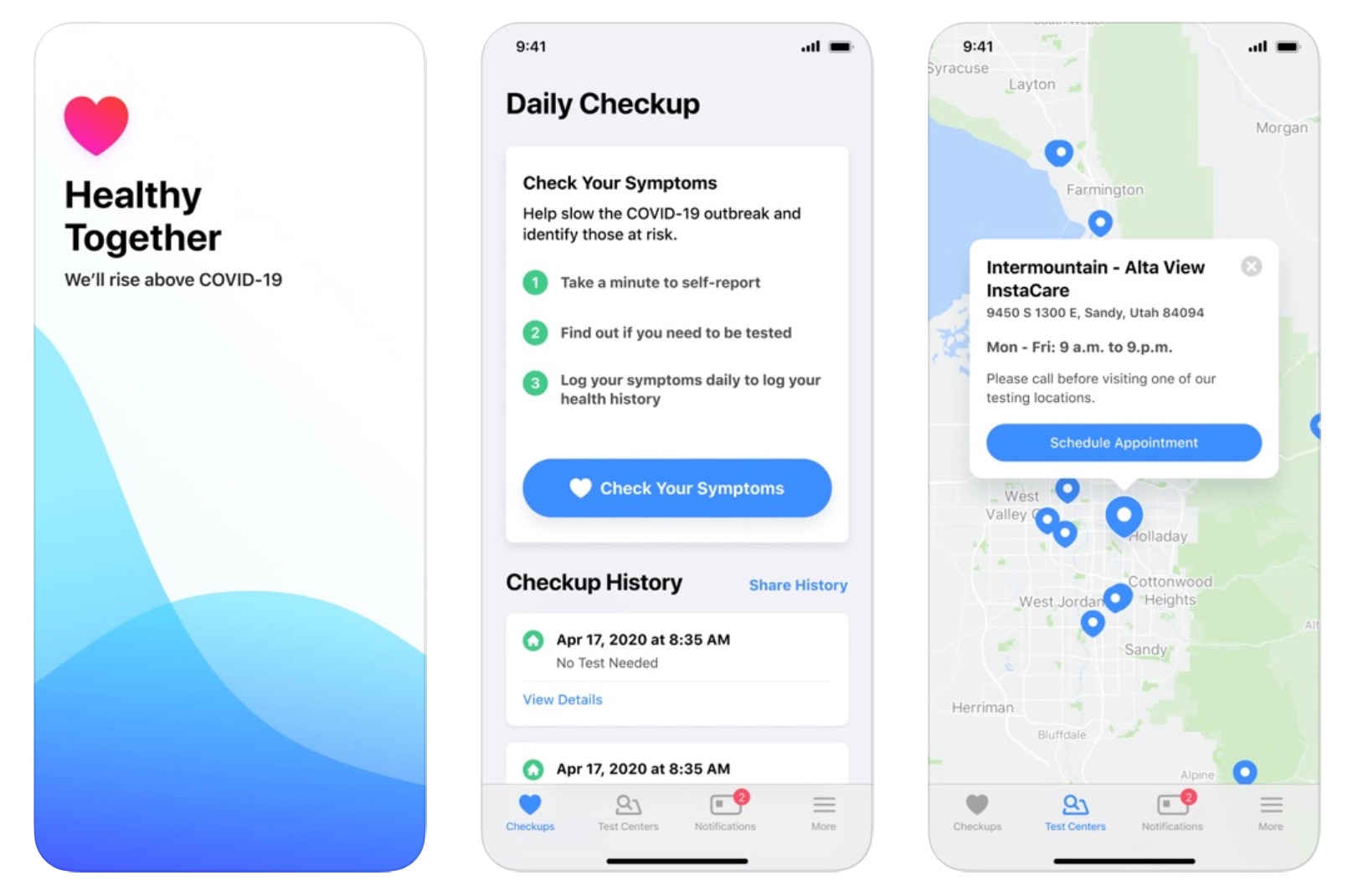

Utah has opted to reject the privacy-respecting contact tracing API offered by Apple and Google for a less-private solution that uses GPS and Bluetooth.
Utah in April released its “Healthy Together,” contact tracing app, designed to limit the spread of the coronavirus by notifying users if they come in contact with someone that was later diagnosed with the virus.
The Utah app, which is currently available in a beta capacity, does not use Apple and Google’s Exposure Notification API. Instead, the app uses a less private Bluetooth and GPS-based solution.
CNBC reports the Healthy Together app was created by social media startup Twenty and does not use the decentralized, anonymized approach that Apple and Google’s API uses.
The Healthy Together app is designed to help the 1,200 Utah Department of Health workers that are performing on-person contact tracing over the phone. The Utah health department can access the name, telephone number, and location data of users who test positive for COVID-19 and opt to share their data.
The app uses Bluetooth and GPS to determine when smartphone users come into contact with other app users, and if someone tests positive, they can share their location history and contact history over the past 14 days with a contact tracer. The app is designed to cut down on the length of time of contact tracing phone calls.
Apple and Google’s privacy-focused solution does not share personal information with public health departments, and it does not involve location-based data collection, unlike Utah’s Healthy Together app.
The Utah state website notes Utah didn’t use the Apple/Google solution because Bluetooth alone “gives a less accurate picture” than Bluetooth and GPS location data.
So far, 45,000 people have signed up for the Utah contact tracing app, which is approximately 2% of the state’s population. Some experts have estimated that to be effective, contact tracing apps require being downloaded by 60% of a population.